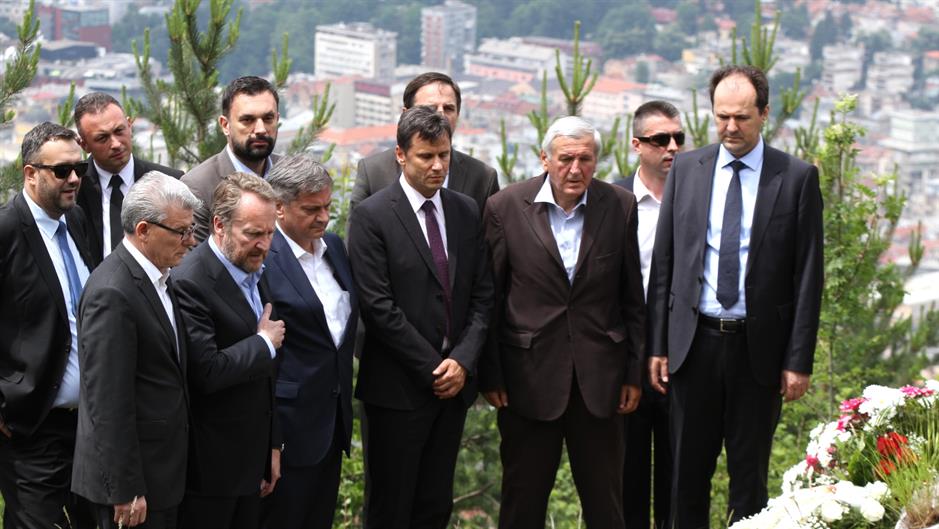NGOs urge Sarajevo authorities to erect memorial for Kazani pit killings victims

Several NGO’s urged Sarajevo city authorities on Monday to implement an initiative to erect a monument for the 23 civilian victims of the Kazani pit killings, committed by members of the Army of the Republic of Bosnia and Herzegovina 27 years ago.
"At that place at the foot of Trebevic, during the siege of the city in 1992 and 1993, citizens of the Bosnian capital were killed in the most brutal way by members of the RBiH Army, led by Musan Topalovic Caco. Fourteen former members of the RBiH Army received sentences between 10 months and six years in prison for this war crime since 1996. Topalovic was killed while trying to escape in 1993 after being arrested in Operation Trebevic II, an operation by police and military forces organized by the then RBiH Presidency, the RBiH Ministry of Interior and the RBiH Army," representatives of the Association for Social Research and Communications, the ZDF Forum, the Network for Building Peace and the Centre for Nonviolent Action said.
After the war ended, the remains of 23 victims of the massacre were found in a deep pit in Kazani and 15 of them were identified so far. Five of them are females and ten are males, aged between 27 and 66. Two of those identified so far were of Ukrainian nationality, two were ethnic Croats one was a Bosniak and ten were Serbs.
"The initiative for the construction of a monument was launched in 2011 and was repeated in 2015 and 2017. In 2012, the City of Sarajevo adopted an initiative to erect a memorial to the killed citizens in Kazani. In 2019, it was promised that the monument would be erected in 2020, but this has not been done so far,” the organisations said.
NGO representatives added that they asked the Vice President of Bosnia’s Federation (FBiH) entity, Milan Dunovic, Sarajevo’s mayor, Abdulah Skaka, and the chairman of Sarajevo’s City Council, Igor Gavric, about the initiative in August.
Dunovic responded, saying that during the mandate of his predecessor, Svetozar Pudaric, funds were already allocated for the development of the conceptual design and transferred to the City of Sarajevo.
“He said he doesn’t know whether the city administration has taken the necessary steps to implement the project. Also, the institution has repeatedly asked the Administration of the City of Sarajevo to provide it with information on why the construction of the monument was not realized, but to date they have not received the requested information,” the NGO representatives said.
"We are still waiting for the answer of the mayor of Sarajevo to our question why the project was not realized,” they said, adding that they demand that the monument to the killed victims of Kazani should be erected in the centre of Sarajevo.
“The monument should be an example of self-critical confrontation with one's own crimes, as well as an example of the moral obligation of Sarajevo’s citizens to pay respects to their fellow citizens killed in Kazani,” they said.
“We call on Sarajevo authorities to erect the monument in the centre of Sarajevo without delay. Such a monument would, as a place of remembrance, symbolically show that Sarajevo, which has suffered the longest siege the experience of the most brutal killings of civilians during the siege, is ready to condemn the crimes in its own ranks and begin a process of constructive confrontation with the past,” they concluded.
Kakvo je tvoje mišljenje o ovome?
Učestvuj u diskusiji ili pročitaj komentare





 Srbija
Srbija
 Hrvatska
Hrvatska
 Slovenija
Slovenija







